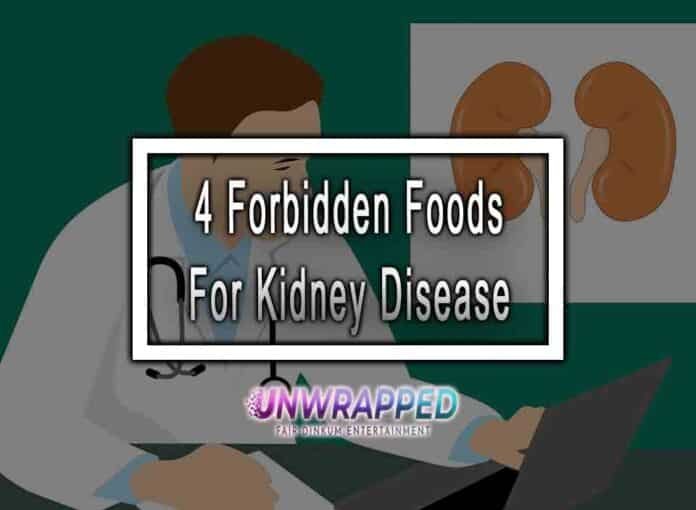4 Foods To Avoid If You Have Kidney Disease
The kidneys are in charge of filtering a variety of toxins that the body excretes via urine. When these cease acting effectively, these toxins begin to accumulate in the body, causing major health issues.
Because the diseased kidney initially exhibits no symptoms,4 Forbidden Foods For Kidney Disease it is referred to as a quiet illness.
Characteristics Of A Diet For The Sick Kidney
Reduce your salt consumption, which adds to fluid retention, as one of the first things you should do to prevent straining your kidneys. As a result, fresh meals should be preferred, and processed food nutritional labels should be carefully examined.
A food with a salt level per serving of more than 20% should be rejected. To limit salt intake, meals should preferable be seasoned with fragrant herbs, and canned items should always be washed.
Proteins create a lot of waste that the kidney has to filter out. Thus the right quantity and kind must be ingested. In the case of animals derived from lean meats, eggs, and low-fat dairy, small doses of protein should be consumed.
Vegetable proteins are mostly found in legumes, which are also phosphorus-rich. Because sick kidneys cannot adequately remove this element and potassium, they should be ingested in moderation.
The diet should mostly consist of fruits and vegetables, with modest servings of protein spaced throughout the day. To help the kidneys operate properly, you should drink enough of water.
It’s critical to understand which foods should be avoided or limited in the diet of a sick kidney patient in order to halt the disease’s progression.
Sodium
Too much salt may lead to bloating, high blood pressure, and renal damage. As a result, limiting daily sodium intake by avoiding adding salt to meals is advised.
Natural spices, lemon juice, and herbs are all good options.
Ultra-Processed
Kidney illness may be worse by the salt in ultra-processed meals. This is commonly used in the food business to enhance taste and preserve food because of its characteristics.
As a result, people with this disease should avoid canned soups, prepared meals, and sauces like soy sauce or tomato sauce (ketchup).
Meat And Fish
Protein is a vital component for the body since it aids in muscular growth, tissue repair, and infection resistance. Patients with renal disease, on the other hand, should limit their protein intake.
In order to process animal protein, the body needs elevate acid levels. The kidneys, which are in charge of removing this excess, must work harder to control it.
It is not advisable to consume more than one serving of animal protein each day. If you consume meat, however, red meat is the poorest choice since it is more difficult to digest and contains more fat. Fish, shellfish, and poultry are the finest options.
Processed Meats
Processed meats are often heavy in fat and salt, both of which are detrimental to one’s health. Excess may exacerbate the symptoms of renal illness.
They also contain an excess of another mineral, phosphorus. It should be noted that only a tiny portion of the substance of vegetable-based foods gets absorbed. If the diet is of animal origin, however, most of the phosphorus is absorbed. As a result, eating processed meats is not suggested.
Also see: Benefits Of The Most Popular Preserves











